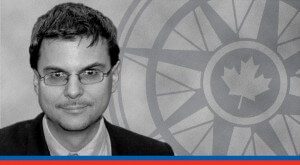 Critics are quick to point the finger at the intelligence and law enforcement communities for not doing more to prevent the Paris attacks. But, writes Christian Leuprecht, we can’t expect them to be effective if we don’t send them into the battle against terrorism with the right equipment.
Critics are quick to point the finger at the intelligence and law enforcement communities for not doing more to prevent the Paris attacks. But, writes Christian Leuprecht, we can’t expect them to be effective if we don’t send them into the battle against terrorism with the right equipment.
By Christian Leuprecht, Nov. 26, 2015
The fact that the presence in France of the mastermind of the Paris attacks appears to have eluded French intelligence, which apparently believed him to be in Syria, is being touted as a failure, made all the more epic by the relative ease with which the attacks in Paris were carried out. How could that happen given that the suspects were already known to security agencies? To point the finger at intelligence is to misdiagnose the problem.
First, democratic governments have imposed a litany of restrictions on the use and sharing of government data. By and large, in Canada, government data can only be used for the purpose for which it was collected. And since the Maher Arar case, Canadian agencies are loath to share intelligence with other departments, let alone countries. Bill C-51, however inchoate, pries that door open just a tad: Agencies may now share data on a specific individual if that person meets certain thresholds for concern.
To point the finger at intelligence is to misdiagnose the problem.
Second, intelligence is a business built on trust, and trust is in short supply. For fear of misinterpretation or inadvertent revelation of methods of collection, collation and analysis, services are loath to share raw intelligence with just about anyone, including their partners and politicians. The “Five Eyes” community – the United States, Canada, Britain, Australia and New Zealand – benefits from an unprecedented degree of trust that catapults its members to the top of the international security pyramid. The alternative is continental Europe. The former director of the DGSR, France’s (rough) equivalent of CSIS, poignantly observed that domestic intelligence relies on its partners to share relevant information. But many regional partners are unreliable. Strains with Turkish intelligence are legendary, and most Eastern and Central European services are thought to be widely infiltrated by Russian operatives. Intelligence co-operation sounds good in theory, but its practice is riddled with mistrust. The facts speak for themselves: French Salafist fanatics went undetected simply by hiding out in a suburb of Brussels whence they planned and executed attacks in Paris.
Third, in a target-rich environment, security intelligence faces painful trade-offs in allocating scarce resources. At the time of the Charlie Hebdo attacks in January, France’s infamous “s-Files” amounted to some 6,000 names. In the meantime, that list has grown to 10,000 names, at least 3,000 of which are thought to be hardened Salafists. Yet the FBI pointed out last week that it takes a minimum of 30 people to monitor a suspect physically, 24/7. By its own admission, even the FBI – the democratic world’s largest criminal intelligence agency – does not have enough resources to follow a few dozen suspects with that degree of scrutiny.
Critics are quick to assail security intelligence and law enforcement for not doing more to prevent the attacks. Yet, they are up in arms about levelling the playing field with the bad guys.
Fourth, intelligence services in constitutional democracies are bound by the rule of law. Security intelligence may have a good idea of what is going on, but the evidence may be insufficient either for law enforcement to mount an investigation, or to have a reasonable chance of conviction. But what is the point of doing a good job identifying bad guys without the means to stop them?
Critics are quick to assail security intelligence and law enforcement for not doing more to prevent the attacks. Yet, they are up in arms about levelling the playing field with the bad guys. In a democracy, the people have the right to decide – and the people have the right to be wrong. But being wrong comes at a high price: hundreds of innocent dead, maimed, wounded and scarred; and, in the aftermath, the suspension of those same civil liberties the self-righteous critics are supposedly defending against the alleged trappings of the “surveillance state.” There’s no better way to take life and undermine liberty than by systematically disinforming the debate on calibrating those institutions that are tasked with protecting our democracy and keeping us safe in response to a rapidly evolving security environment. The deafening silence of those same critics in the aftermath of Paris proves the point: The greatest threat to our rights and freedoms is simplistic libertarianism that staunchly refuses to acknowledge that, now more than ever, democracy needs to be defended. Events in France expose an intelligence emperor with very few clothes. Let us send those on the front line of this fight into battle with the right equipment. Those powers need to be balanced with robust review to ensure that the spooks are playing by the rules. In the words of Ronald Reagan: Trust, but verify.
Christian Leuprecht is a professor at the Royal Military College of Canada and Queen’s University, and a senior fellow at the Macdonald-Laurier Institute.




